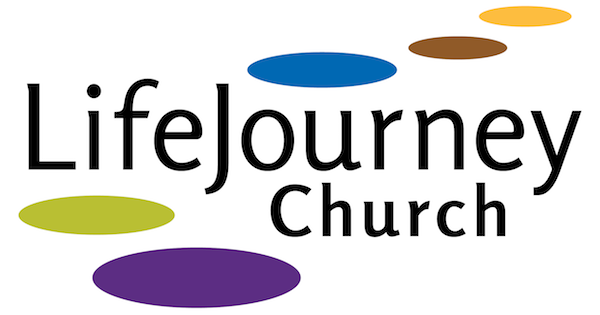
What Does It Mean to Be Transgender?
A transgender person is someone whose deep inner sense of gender differs from the gender they were assigned at birth. Put simply, the gender of their brain doesn’t match the gender of their body. A nonbinary person is someone whose gender identity or expression doesn’t fit neatly into either male or female, but instead combines characteristics typically associated with both. Transgender and nonbinary people are sometimes collectively referred to as gender diverse. Contrary to popular misconceptions, transgender and nonbinary people don’t wake up one morning and decide to experiment with a different gender on a whim. The vast majority of transgender and nonbinary people have a persistent sense of gender difference that comes from deep within and goes all the way back to their earliest memories. When they are forced to suppress that important aspect of themselves, it causes enormous pain and despair, and can even lead to suicidal thoughts.
A Biblical Perspective on Transgender People
On our billboards, we cite Matthew 22:37-39 for a very important reason. There Jesus tells us that the greatest commandment is to love God with all our being. He then says that the second greatest commandment, which flows from the first, is “to love your neighbor as yourself.” When we have a neighbor whose life experience is different from ours, love means taking time to hear their story and to get to know them, instead of lashing out in fear. As the old saying goes, ‘You can’t hate someone whose story you know.’” Generally speaking, we Christians spend too much time talking and not enough time listening. The Bible says, “Let everyone be quick to listen [and] slow to speak.” James 1:19. If you’ve never had the chance to hear the story of a transgender person, make a point of doing so, then let the love of God guide your heart.
But don’t stop there, because the Bible has much more to say about how we should view transgender people. If you’d like to hear a full sermon on the Bible and Being Transgender, we invite you to go to this link: The Biblical Case For Spiritual Equality For Transgender People – LifeJourney Church. For those who’d rather read a narrative explanation, here’s a quick overview of some relevant Bible passages:
Psalm 139:13-15 teaches that God designs each of us in intricate detail before we’re born. This passage affirms that God “intricately” formed our “inward parts” and “knit [us] together in [our] mother’s womb,” and, therefore, each of us is “wonderfully made.” That means transgender people aren’t an accident; they’re part of God’s magnificent creation design.
Jeremiah 1:5 and Isaiah 45:9 teach that each aspect of our being serves a purpose in God’s greater scheme of things. Transgender and nonbinary people bring unique perspectives and experiences that enrich our world.
I Corinthians 15:42-57 and II Corinthians 5:1-8 teach that our physical body is temporary, whereas our inner being (i.e., our soul) is eternal. So if there’s ever a conflict between our temporary physical body and our inner eternal being, which should yield? In Christian theology, the obvious answer is that conflicts between our temporary body and our eternal soul must be resolved in favor of our eternal soul, as is confirmed by 1 Samuel 16:7, which reminds us that, “The Lord sees not as humans see; humans look on the outward appearance, but the Lord looks on the heart.” In other words, the soul matters far more than the body. That’s why Christians do not hesitate to alter their bodies in many different ways. Examples include: braces for teeth, prosthetic limbs, LASIK eye surgery, cutting our hair, appendectomies, vaccinations, and medicines that alter our “natural” body chemistry. So why do some Christians get all bent out of shape when the same principle is applied to transgender people?
Deuteronomy 22:5 is part of the Old Testament Mosaic Law. It says that men should not wear women’s clothes and vice versa. Some Christians believe that means trans people shouldn’t wear clothes that conform to the gender of their inner being. There are two problems with that conclusion. First, the New Testament clearly and emphatically teaches that Christians are not bound by the Mosaic Law. E.g., Matthew 17:24-27, II Corinthians 3:6, and Galatians 5:16. As a result, many Christians frequently do things that are contrary to the Mosaic Law, including eating pork and shellfish, wearing clothing made of blended fabrics, getting tattoos, etc., etc. It is wildly inconsistent to insist Deuteronomy 22:5 still applies while freely ignoring other Mosaic rules.
Second, even if Deuteronomy 22:5 did still apply to Christians, we’d still have to decide how to define “man” and “woman” for purposes of applying the rule. If someone’s temporary physical body appears to be one gender, but their eternal soul is a different gender, is that person a male or female in God’s eyes? As already noted in the prior question, God looks at our inner being, not outward appearance. Therefore, God would want a person to dress in a manner that conforms to their inner being, whether that’s male, female, or a creative blend of both.
Yes, in Matthew 19:11-12. In verse 12, Jesus refers to men “who have been eunuchs from birth.” Who were these “born eunuchs” Jesus was referencing? Some have suggested that Jesus was referring to men with genital birth defects, but that interpretation is not consistent with available evidence. For guidance as to what the term “born eunuch” meant in Jesus’ time, scholars look to the Talmud, a collection of Jewish oral tradition from around the time of Jesus. There are two passages in the Talmud that shed light on what it meant to be a born eunuch. In one of those passages, Rabbi Eliezer says he believes born eunuchs, can be “cured.” (Talmud Bavli, Tractate Yevumos, The Schottenstein Edition, Mesorah Publications Ltd., Brooklyn, NY, 1999, Chapter 8, 79b.) Clearly, Eliezer was not referring to genital birth defects since that kind of surgical technology did not yet exist. So what did Eliezer think could and should be “cured” in born eunuchs? The second Talmudic passage tells us. That passage lists warning signs to watch out for to know if you are interacting with a man who was a born eunuch. The signs include absence of a beard, softness of hair, smoothness of skin, a high pitched voice, lateness of pubic hair, a body that did not steam when bathing outdoors in the winter, and failure to pee with enough force to make it arch. (Talmud Bavli, Tractate Yevumos, Chapter 8, 80b.) This list strikes us as humorous, but you see what it is, right? It’s describing men who failed to live up to gender stereotypes – men who didn’t present themselves in a gender-conforming way – men who were what we today would call “gender fluid.” In other words, the term “born eunuch” was an ancient way of referring to people that we today would call gender diverse, i.e., transgender or nonbinary. And here’s the most important point. Jesus did not condemn born eunuchs. He did the exact opposite! In verse 11, he indicated that being a born eunuch was (and is) a gift, i.e., something “given” to some people by God from birth.
Isaiah 56:4-5, “For thus says the Lord, ‘To the eunuchs who keep my Sabbaths, who choose the things that please me and hold fast my covenant, I will give in my house and within my walls a monument and a name better than sons and daughters; I will give them an everlasting name that shall not be cut off.” If God loves and celebrates gender-diverse people, shouldn’t we?
Transgender People Are Being Targeted
Despite the clear teachings of Scripture, transgender people have now become the favorite target of the religious right. Dozens of state legislatures are being pressured to pass bills that single-out transgender people for discrimination. Examples of the kinds of bills being pushed include:
Bills banning gender affirming care.
Some of these bills deprive parents the right to decide whether their teenage child should receive gender affirming care, even when such care is recommended by psychologists and doctors after extensive medical and psychological analysis.
Other bills seek to prevent all transgender people, even adults, from receiving gender affirming care.
School Gag Orders.
These bills seek to restrict the speech of teachers and school administrators, prohibiting them from sharing factual information about transgender people and/or prohibiting them from using the name and pronouns requested by transgender students. Some of these bills ban the sharing of technical and factual information about being transgender even in sex education classes at the high school level.
Trans Student Suppression Bills.
These bills strip school districts of the authority to determine how to support transgender students and instead mandate harsh treatment. This can impact areas such as restroom use, names and pronouns used, sports participation, etc.
Drag Show Bills.
These bills prohibit drag shows in any venue that might include children, with draconian consequences for any violations, even if unintentional .
Bathroom Bills.
These bills force transgender people to use restrooms that do not conform to their gender expression, thereby subjecting them to danger and hostility.
Identification Document Bills.
These bills prohibit transgender people from legally changing their gender on various types of governmental identification such as birth certificates and drivers licenses.
Taken together, the foregoing bills represent a massive effort to erase trans people from public life in America. Bills like this not only restrict the rights and freedom of trans people, they also make it socially acceptable to hate and mistreat them. Nothing could be further from the Spirit of Christ. In the Gospels, Jesus consistently stood with those who were considered “least” in his culture. Matthew 25:31-46. We who claim to follow him should do the same!
How We Can Stand With Transgender People?

Here are several simple, but powerful steps you can take right now to help turn the tide:
Remember, according to Jesus, the Second Greatest Commandment is to love your neighbor as yourself. Matthew 22:37-39.
using some of the resources listed below.
Send a short email or leave a voice message thanking them for not moving forward with any anti-trans legislation in the current session and asking them to oppose any such legislation in future sessions. You can quickly identify your State Senator and State Representative and get their contact information at Find Your Representatives – Common Cause. You can do all this in 15 minutes!
We need our legislators to know that many Hoosier
voters stand squarely against anti-trans discrimination, including many people of faith!
a local organization dedicated to supporting gender diverse people and their families. Services | GenderNexus
that, like Jesus, celebrates diversity and stands with those who are most vulnerable in our society. If you’re looking for a church like that, check out More About LifeJourney – LifeJourney Church.
Together we can make Indiana a better place for our transgender friends, family, and neighbors!
Helpful Resources:
Sermons
To hear a variety of sermons about the Bible and Being Transgender, click on the title above.
Support Organizations
GenderNexus | Empowering gender-diverse people and their loved ones. For more information, click on the title above.
Books
For further reading about the Bible and transgenderism, check out, Transforming: The Bible and the Lives of Transgender Christians, by Austen Hartke. If you’d like to read the biography of a transgender person, check out, In the Form of a Question: The Joys and Rewards of a Curious Life, by Amy Schneider, a transgender woman and Jeopardy! Champion. If you’d like to read more about the Bible and being Gay or Lesbian, check out, The Children Are Free: Reexamining the Biblical Evidence on Same-sex Relationships, by Rev. Jeff Miner and Rev. John Tyler Connoley.

